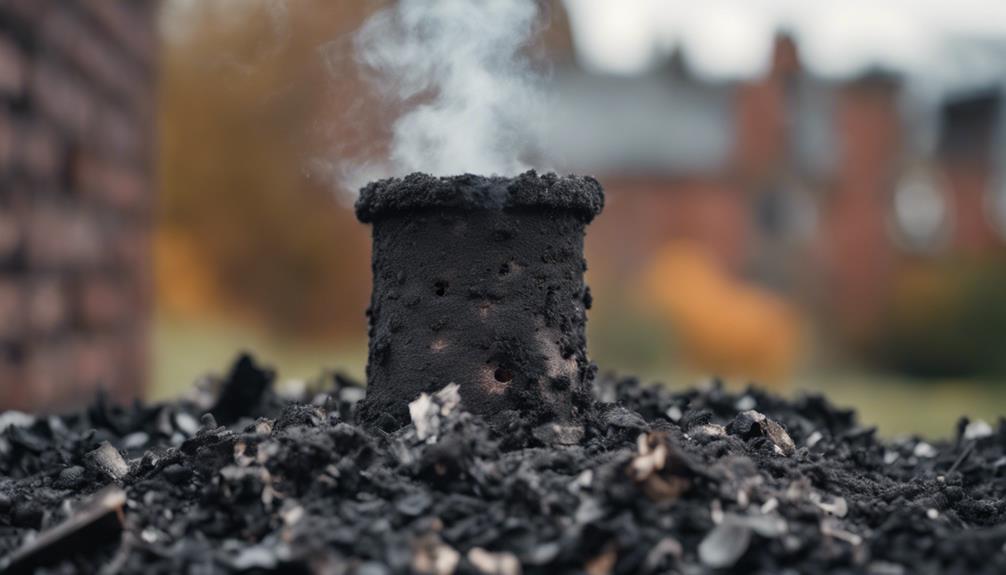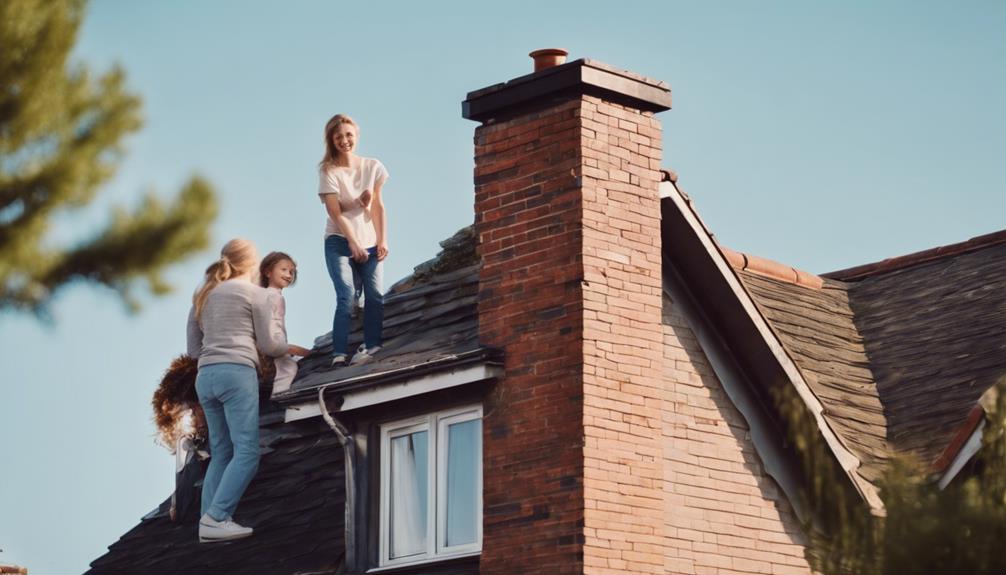The Essential Guide to Regular Chimney Cleaning
Leverage the power of regular chimney cleaning to protect your home and family from potential dangers and ensure optimal heating efficiency.
Maintaining a clean chimney is paramount in ensuring the safety and efficiency of your home. The build-up of creosote and debris can pose serious risks, making regular cleaning a critical task for homeowners.
From preventing chimney fires to enhancing the performance of your heating system, the benefits of proper chimney maintenance are numerous.
In this guide, we will explore the key considerations for maintaining a clean chimney and why professional inspections play an important role in this process.
Stay tuned to discover how regular chimney cleaning can safeguard your home and loved ones.
Significance of Chimney Cleaning
Regular chimney cleaning is essential for maintaining the safety and efficiency of your fireplace and preventing potential hazards such as chimney fires and carbon monoxide poisoning.
Over time, creosote, a byproduct of burning wood, can build up inside the chimney. This highly flammable substance can ignite and lead to a dangerous chimney fire if not removed through regular cleaning.
Additionally, blockages caused by debris, animal nests, or other obstructions can hinder proper ventilation, causing toxic carbon monoxide to back up into your home.
Frequency of Chimney Cleaning
To maintain best safety and efficiency in your fireplace, it is important to establish a clear schedule for chimney cleaning based on the frequency recommended by professionals in the field. Regular chimney cleaning is important to prevent the buildup of creosote, a highly flammable substance that can lead to chimney fires. The frequency of chimney cleaning depends on several factors, including usage patterns, the type of fuel burned, and the design of the chimney.
Here are some general guidelines to help you determine how often you should clean your chimney:
- Annual Inspections: It is recommended to have your chimney inspected at least once a year by a certified chimney sweep. This inspection will help identify any issues that may require cleaning or repairs.
- Regular Use: If you regularly use your fireplace or stove, you should consider cleaning your chimney more frequently. For frequent users, cleaning every 1-2 years is advisable to ensure best performance.
- Burning Practices: Burning green or unseasoned wood can lead to increased creosote buildup. If you often burn these types of wood, more frequent cleanings, perhaps every 6 months, may be necessary to maintain a safe chimney.
Factors Influencing Cleaning Frequency

Several key factors influence the frequency at which chimney cleaning should be performed to guarantee safety and efficiency in fireplace operation.
The first factor is the type of fuel used. For example, burning wood produces creosote, a flammable substance that accumulates on chimney walls. The more frequently wood is burned, the faster creosote builds up, necessitating more frequent cleanings.
Another important factor is the age of the chimney. Older chimneys tend to have more wear and tear, leading to a higher likelihood of blockages or structural issues that require regular inspection and cleaning.
Additionally, the design of the chimney, its height, and location can impact cleaning frequency. Chimneys located in areas with high winds or surrounded by trees are prone to debris buildup, requiring more frequent cleanings.
Importance of Professional Inspections
Given the intricate factors influencing chimney cleaning frequency, a professional inspection plays an important role in maintaining the safety and efficiency of fireplace operation. Professional chimney inspections provide a thorough assessment of the chimney's condition, identifying potential issues that could pose safety hazards or affect the performance of the fireplace. Here are three key reasons why professional inspections are essential:
- Early Detection of Problems: Professional chimney sweeps are trained to spot early signs of damage or deterioration that may go unnoticed by the untrained eye. Identifying issues at an early stage can prevent costly repairs down the line and guarantee the continued safe operation of the chimney.
- Compliance with Safety Standards: Professional inspections help guarantee that your chimney meets the necessary safety standards and regulations. This is especially important for homeowners looking to maintain a safe and compliant home environment.
- Peace of Mind: By scheduling regular professional inspections, homeowners can have peace of mind knowing that their chimney is being properly maintained and that any potential risks are being addressed promptly. This proactive approach to chimney care can prevent accidents and prolong the lifespan of the chimney system.
Ensuring Home Safety and Efficiency

Maintaining excellent home safety and efficiency requires a meticulous approach to chimney maintenance and cleaning. A clean chimney not only guarantees the reduction of the risk of chimney fires but also guarantees that your home heating system functions efficiently. Regular cleaning prevents the build-up of creosote, a highly flammable substance that can ignite and cause a dangerous chimney fire. Additionally, a clean chimney promotes proper ventilation, allowing harmful gases like carbon monoxide to escape outside, therefore safeguarding your family from potential health hazards.
Efficiency is another key aspect of chimney maintenance. A clean chimney allows for better airflow, enabling your fireplace or stove to burn fuel more effectively and evenly. This, in turn, maximizes the heat output and minimizes energy wastage. Additionally, a well-maintained chimney helps prevent smoke from backing up into your home, reducing indoor air pollution and keeping your living space clean and comfortable.
Frequently Asked Questions
Can Chimney Cleaning Prevent Carbon Monoxide Leaks in My Home?
Regular chimney cleaning is important to prevent carbon monoxide leaks in homes. Accumulated debris, such as soot and creosote, can block the chimney, leading to improper ventilation and potential CO buildup. Professional cleaning guarantees safe operation.
How Do I Know if My Chimney Needs Repairs in Addition to Cleaning?
Detecting if your chimney needs repairs requires a thorough inspection by a qualified professional. Look for signs like cracks, loose bricks, water damage, or crumbling mortar. Addressing these issues promptly can prevent more extensive damage and guarantee safe operation.
Is It Necessary to Clean My Chimney if I Rarely Use My Fireplace?
Regular chimney cleaning is still necessary even if the fireplace is rarely used. Creosote buildup, debris, and animal nests can obstruct ventilation, leading to potential fire hazards or poor indoor air quality. Professional inspection and cleaning confirm safety.
Are There Any DIY Chimney Cleaning Methods That Are Safe and Effective?
DIY chimney cleaning methods can be safe and effective when done properly. Techniques like using a chimney brush, cleaning rods, and vacuuming can help remove creosote and debris. However, for thorough cleaning, professional inspection and cleaning are recommended.
What Are the Potential Risks of Not Cleaning My Chimney Regularly?
Neglecting regular chimney cleaning poses risks such as chimney fires due to creosote buildup, carbon monoxide poisoning from blocked flues, and structural damage from debris. Professional maintenance is essential to prevent these hazards.
